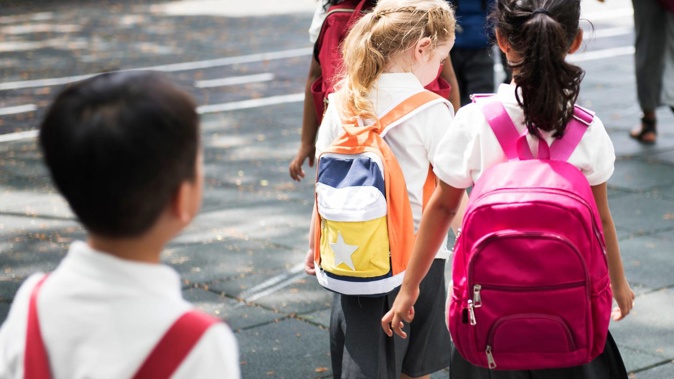
The Ministry of Education wants to restrict enrolments for international students under year 9 at New Zealand schools - but principals say the plans don't make sense.
Primary and intermediate principals are being asked for their views on hosting international fee-paying students, most of whom enrol at high-decile schools.
Those schools use the extra funds they bring in to improve what they can offer domestic students - from property improvements to more teacher aides.
The ministry says that system creates inequity between high- and lower-decile schools.
It also runs the risk of diverting schools' focus away from their core job of teaching domestic students and adding to migration pressures, its discussion document says.
Some international students under Year 9 come to New Zealand specifically for schooling, while others come in tour groups and are here for three months at most. Others are dependent children of visa holders who don't qualify as domestic students.
The ministry wants to restrict or stop the first two groups from enrolling at New Zealand schools, including - possibly - private schools. It appears to plan to allow dependent children of visa holders to remain.
The ministry acknowledged its proposal would mean a loss of revenue for schools.
In 2019, there were 5225 international students enrolled at primary or intermediate, across 324 schools, bringing in almost $30 million in revenue to schools.
More widely, one international primary student brought in about $60,000 annually, meaning the sector would have economic benefits of more than $300m to the country.
Tauranga Intermediate principal Cameron Mitchell told RNZ that pre-Covid his school had about 30 foreign students - one to each classroom.
Teachers and students loved having international students around - they gave their Kiwi classmates insight into other cultures and did not create extra work for teachers, he said.
Mitchell said the Government's proposal did not make sense and principals were not happy.
"They're pretty angry actually because we can only see the positive impacts of international students on our school communities," he said.
"Yes, we generate a lot of extra revenue but importantly a lot of that revenue is used to support our New Zealand domestic students' education."
NZ Education Institute president Liam Rutherford told RNZ the union was worried inadequate government funding was forcing schools to enrol foreign students for their fee income.
He said all schools should be properly resourced.
Remuera Intermediate principal Kyle Brewerton told the Herald the assumptions the ministry had made in the document didn't stack up.
Brewerton's decile 8 school usually had about 20 international students, which gave him about $200,000 in extra funding.
That money went toward extra ESOL lessons, property improvements and resources like digital devices for students who were less well off.
A very low-decile school would receive about $600,000 in extra targeted funding compared to Remuera, which is decile 8. Low-decile schools needed that money but taking funds away from high-decile schools was not the answer, he said.
Brewerton raised the issue with the Act Party, whose leader David Seymour is the school's local MP.
Act's education spokesman Chris Baillie warned of "devastating effects" if the suggested changes were made.
"As a former teacher, I know the value these students can bring, not just economically, but socially. They broaden the horizons of our Kiwi students and become lifelong ambassadors for New Zealand.
"But the financial contribution also can't be ignored. Some schools rely on this income for specialist programmes. One principal has told Act it funds the school's Te Reo classes, other schools use the funds for teacher aides.
"If students can't go to public schools, they will either go private or not come at all and that would be a huge loss for New Zealand."
Baillie said the rest of the world was "moving on" from Covid, and countries like Australia and Canada had plans to welcome students back.
Education Minister Chris Hipkins told the Herald he had last year asked the ministry to consult the sector on the pros and cons of international education for primary and intermediate schools.
It was timely to have the discussion before the border opened and while many international students had returned home.
"We're asking the sector to consider issues with the enrolment of international fee-paying students under Year 9, including the diversion of the focus of schools away from their core responsibilities to domestic students, inequity between schools and the impact on wider migration pressures like housing and infrastructure."
The proposal was part of the New Zealand International Education Strategy 2018-2030.
Take your Radio, Podcasts and Music with you









